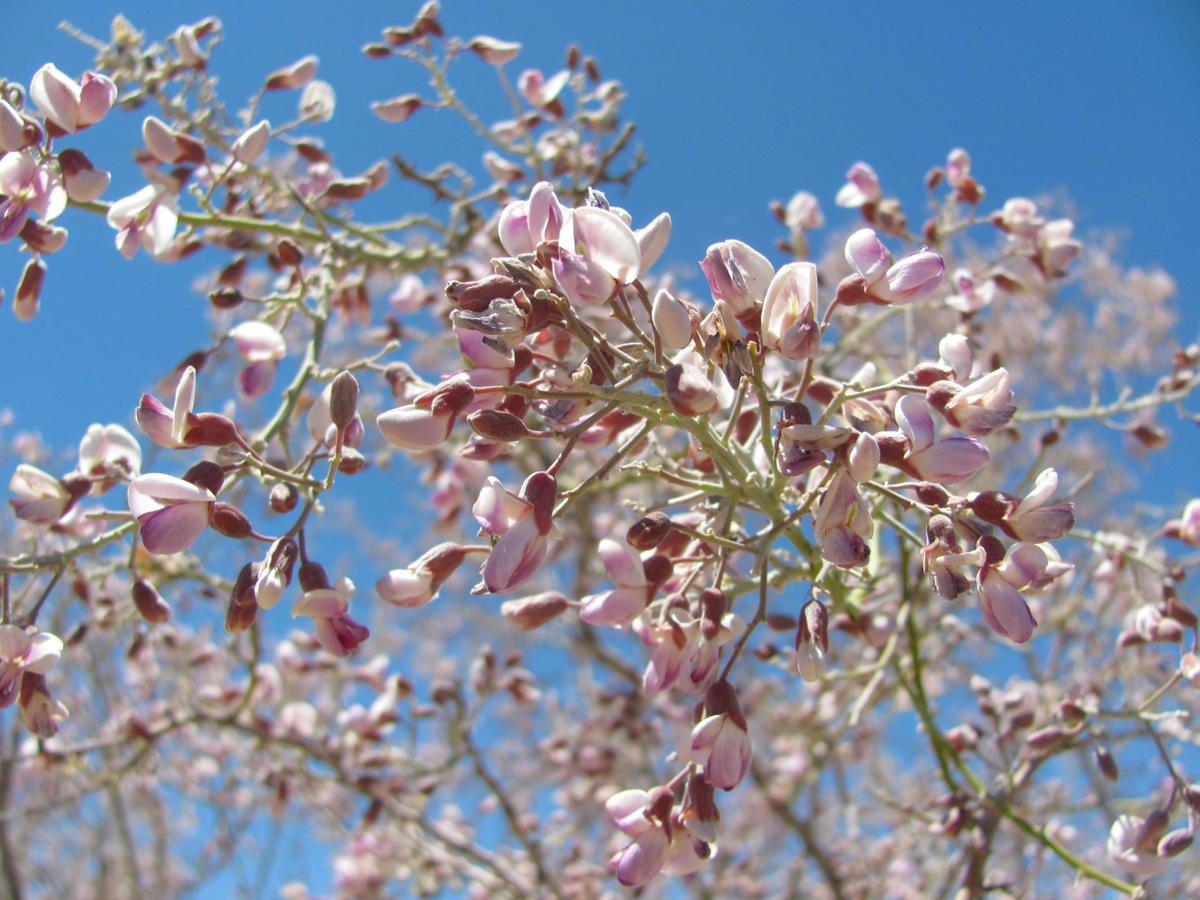Ironwood (Olneya tesota) is a beautiful leguminous tree native to the Sonoran desert. It produces a very dense wood, hence its name. Ironwoods are very well-adapted to our desert, and are relatively tolerant of transplantation. These characteristics, along with their non-invasive roots, make them good landscape trees. They are also wonderful habitat trees, as birds, pollinators and insects love them.
Ironwoods are a keystone species and are almost exclusive to the Sonoran desert. They can grow up to 50 feet tall (most will stay under 30 feet). Ironwoods are mostly evergreen, but can drop leaves in extreme drought or cold. They also tend to drop leaves before flowering. They may not flower every year, but when they do they have beautiful purple pea-like flowers which usually bloom anytime from March to May. How abundant their flowering is is dependent on water availability. The fruits are in pods, and are a great source of food for wildlife as well as humans — reportedly they taste similar to peanuts. The trees are very long-lived, up to 150 years.
In wild landscapes, ironwoods function as nurse plants for other vegetation (such as our iconic saguaros) due to their ability to fix nitrogen and to provide shade when many other trees may be suffering from drought. Ironwoods are frequently the tallest trees in a wild landscape, which adds to their ecological usefulness as habitat for birds. They are reported to grow very slowly in the wild, but in a managed landscape setting with regular supplemental irrigation they have a moderate growth rate.
They are one of the most drought-tolerant trees in our area, so they can certainly get by without extra water once they are established. With supplementary watering in a landscape they will look better and grow faster, but be prepared for suckers to sprout from the bottom. They need well-drained soil, so make sure you remove any caliche hardpan when planting them. Also keep in mind that ironwoods are very thorny, so you will want to plant them in areas where they won’t be snagging clothing, hair or skin.
The swimming pool industry is seeing increased demand as summer begins, including a demand for permanent pools.





